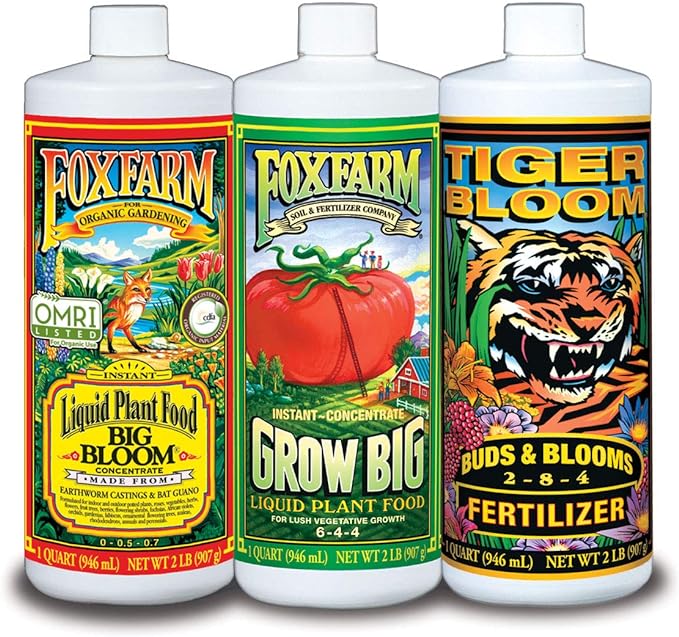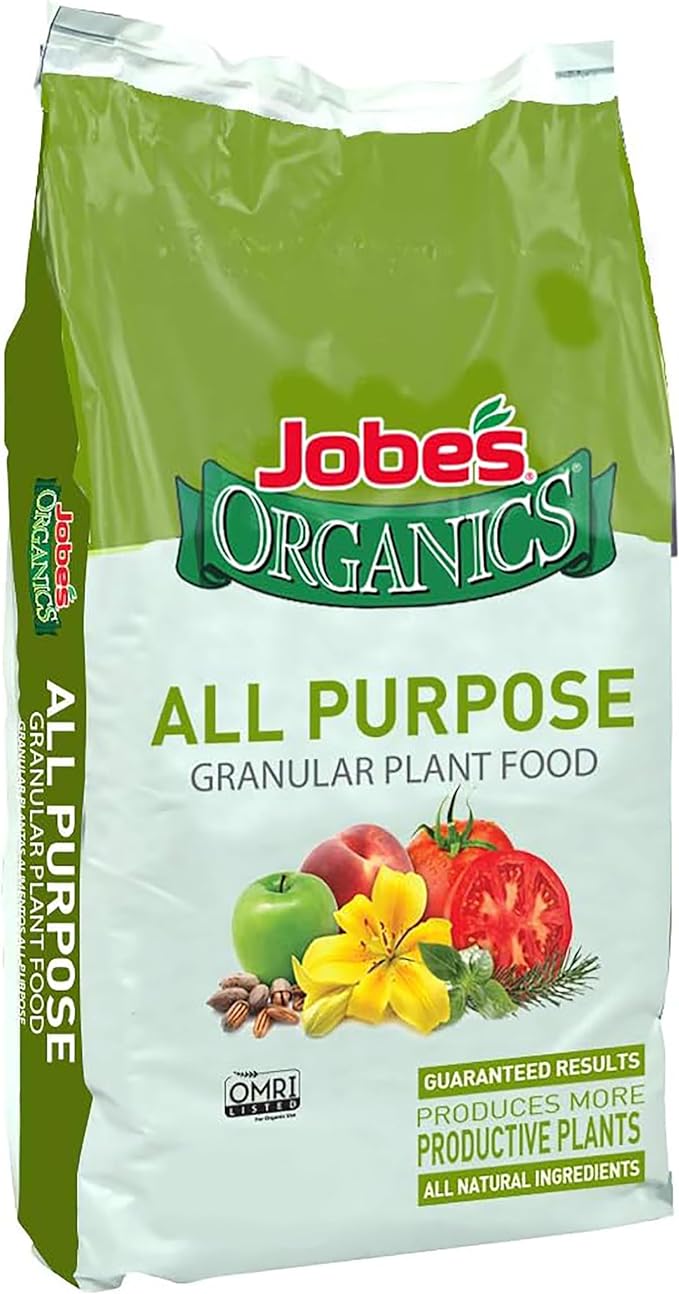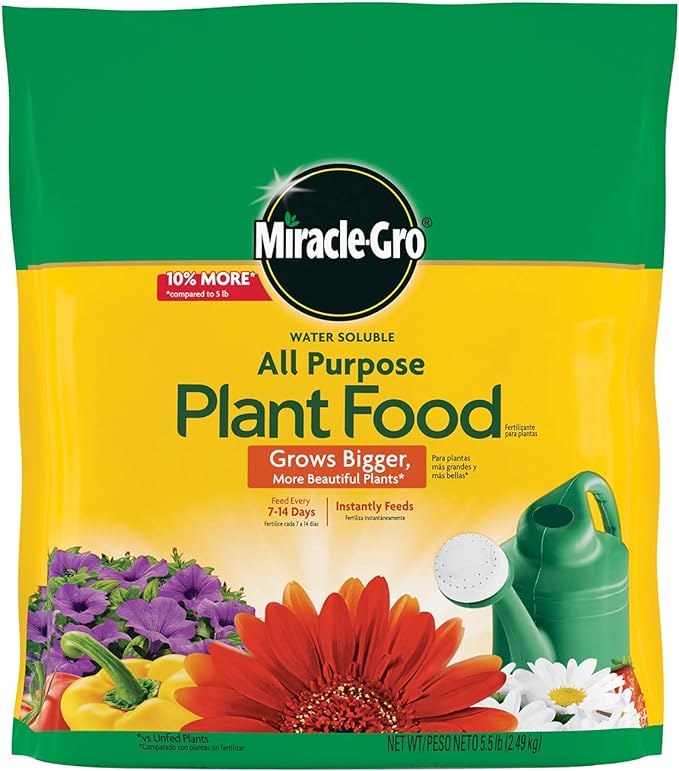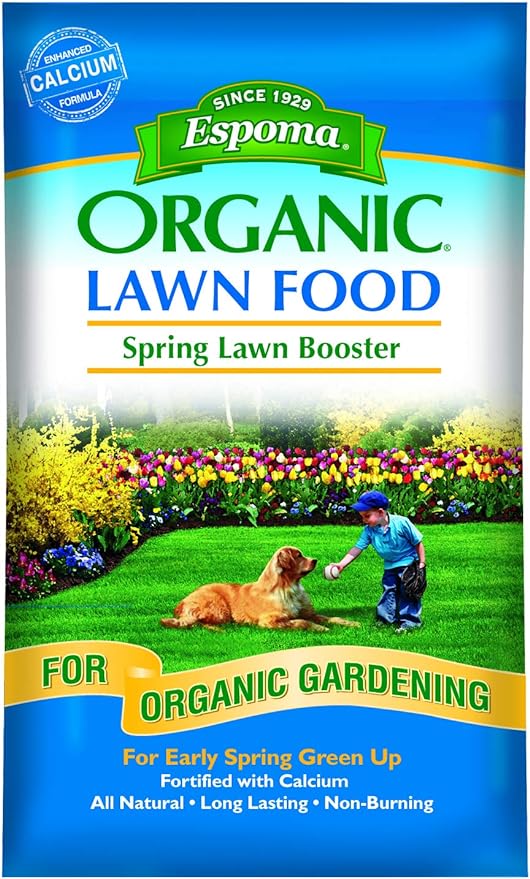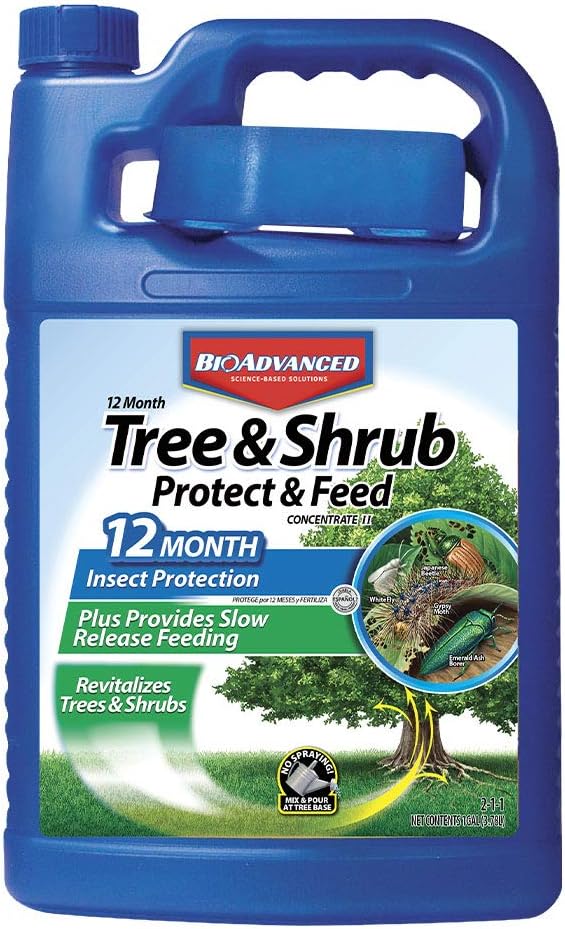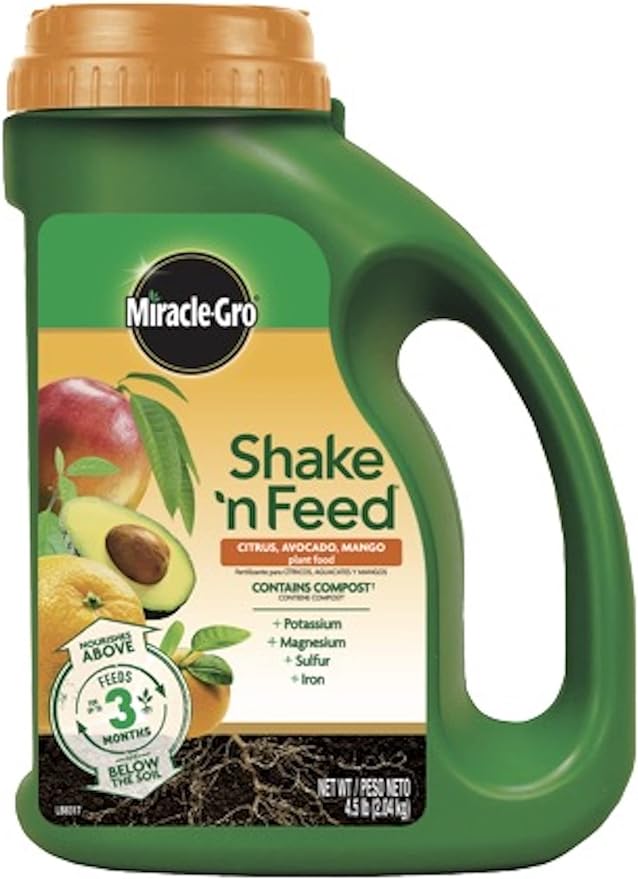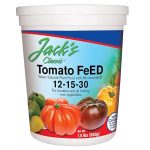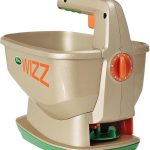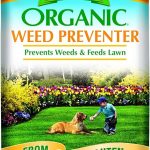While a lush and thriving garden may seem like a distant dream, it’s actually within your reach – with the right fertilizer, that is. On one hand, you’ve got a garden that’s struggling to survive, but on the other, you’ve got a plethora of fertilizer options that promise to turn things around. But which ones can you really trust? According to gardening experts, there are six top-rated fertilizers that stand out from the rest, and we’re about to explore what sets them apart. But first, let’s take a closer look at what makes these fertilizers the crème de la crème of the gardening world.
Contents
- Fox Farm Liquid Nutrient Trio Soil Formula
- Jobe’s Organics All Purpose Fertilizer
- Miracle-Gro All Purpose Plant Food
- Espoma EOLB30 Organic Lawn Booster Fertilizer, 30-Pound
- BioAdvanced 12 Month Tree and Shrub Protect and Feed II, Concentrate, 1 Gal
- Miracle-Gro Shake N Feed Citrus, Avocado, Mango Plant Food
- Factors to Consider When Choosing Fertilizers
- Frequently Asked Questions
- Conclusion
Fox Farm Liquid Nutrient Trio Soil Formula
If you’re looking for a thorough fertilizer solution that caters to your plants’ diverse needs, the Fox Farm Liquid Nutrient Trio Soil Formula is an excellent choice, offering a potent trio of formulas to boost growth, flowering, and root development.
This 3-pack of favorite liquid fertilizers from FoxFarm provides you with the perfect combination for a thriving garden.
You can use Grow Big for abundant green growth, switch to Tiger Bloom at the first sign of bud set or flowering, and rely on Big Bloom throughout all growing cycles to heal root systems and increase nutrient cycling.
With a 4.8-star rating from over 6,400 customer reviews, you can trust this formula to deliver exceptional results for your mature, late-season flowers and fruit.
Best For: Gardeners seeking a comprehensive fertilizer solution for their plants’ diverse needs.
Pros:
- Offers a trio of formulas to cater to different stages of plant growth
- Can be used throughout all growing cycles to promote healthy root development and nutrient cycling
- Has a high customer rating of 4.8 stars from over 6,400 reviews
Cons:
- No specific information is provided about the product’s warranty
- The product’s weight and dimensions may make it cumbersome to store or transport
- The product’s specific uses are limited to plant food, which may not be suitable for all gardeners’ needs
Jobe’s Organics All Purpose Fertilizer
For gardeners seeking an eco-friendly fertilizer that won’t harm children or pets, Jobe’s Organics All Purpose Fertilizer is an excellent choice, boasting an OMRI-listed, synthetic-chemical-free formula that promotes a healthy soil environment.
You’ll appreciate its 4-4-4 NPK ratio, which provides essential nutrients for high-yielding, vibrant foliage.
This fertilizer is easy to use and measure, ensuring you give your plants the right amount of nutrients.
Plus, it’s safe to use around kids and pets, and it helps resist disease, insects, and drought during the growing season.
With a 4.6-star rating from over 16,000 customers, you can trust that this fertilizer will help you achieve a lush and thriving garden.
Best For: Gardeners seeking an eco-friendly fertilizer that is safe for children and pets.
Pros:
- OMRI-listed, synthetic-chemical-free formula promotes a healthy soil environment
- Easy to use and measure, ensuring the right amount of nutrients for plants
- Safe to use around kids and pets, and helps resist disease, insects, and drought during the growing season
Cons:
- Some customers have mentioned a strong, earthy odor from the fertilizer
- Not meant for indoor use and should be stored securely away from pets
- May need to be mixed with other fertilizers or used at a lower strength for specific plants
Miracle-Gro All Purpose Plant Food
Miracle-Gro All Purpose Plant Food is a reliable fertilizer that’s safe to use on a wide range of plants, from flowers and vegetables to trees and houseplants.
This water-soluble fertilizer is easy to use, and you can feed your plants every 1-2 weeks for best results.
The 5.5-pound bag is resealable and waterproof, and it comes with a measuring scoop.
With over 57,000 ratings and 4.7 out of 5 stars, you can trust that this fertilizer is effective and value for money.
Made in the USA, Miracle-Gro All Purpose Plant Food is a popular choice among gardeners, and it’s safe for all plants when used as directed.
Best For: Gardeners of all levels who want a reliable, easy-to-use, and effective fertilizer for a wide range of plants, from flowers and vegetables to trees and houseplants.
Pros:
- Instantly feeds plants to grow bigger and more beautiful
- Safe to use on a wide range of plants, including flowers, vegetables, trees, shrubs, roses, and houseplants
- Easy to use and comes with a measuring scoop for convenient application
Cons:
- None mentioned in the product description or customer reviews.
Espoma EOLB30 Organic Lawn Booster Fertilizer, 30-Pound
This 30-pound Espoma EOLB30 Organic Lawn Booster Fertilizer is the best choice for homeowners who want to cover up to 5,000 square feet of lawn with an environmentally friendly, pet-safe fertilizer that provides slow-release nitrogen.
With its 8-0-0 formulation, made from Feather Meal, Pasteurized Poultry Manure, and Gypsum, you can trust that your lawn will receive the nutrients it needs to thrive.
As a homeowner, you’ll appreciate that this fertilizer isn’t only safe for your kids and pets but also effective in promoting healthy lawn growth and pushing back weeds.
With a 4.6-star rating from 207 customer reviews, you can be confident in your decision to choose this product for a lush and thriving garden.
Best For: Homeowners who want to cover up to 5,000 square feet of lawn with an environmentally friendly, pet-safe fertilizer that provides slow-release nitrogen.
Pros:
- Environmentally friendly and pet-safe
- Effective in promoting healthy lawn growth and pushing back weeds
- Provides slow-release nitrogen for a lush and thriving garden
Cons:
- No cons mentioned in the product description
- No cons mentioned in the product description
- No cons mentioned in the product description
BioAdvanced 12 Month Tree and Shrub Protect and Feed II, Concentrate, 1 Gal
With its 12-month protection against a wide range of insects and pests, BioAdvanced’s Tree and Shrub Protect and Feed II is the best choice for gardeners seeking long-term defense and nourishment for their outdoor trees and shrubs.
You’ll have peace of mind knowing that this concentrate will kill Japanese Beetles, Emerald Ash Borers, Adelgids, Leafminers, Aphids, Caterpillars, and more, ensuring your plants stay healthy and thriving.
As a slow-release fertilizer and plant food, it’ll improve your tree and shrub health, providing systemic protection from roots to leaves.
Plus, it’s easy to use, with no spraying required, and is rainproof, so you won’t have to worry about it washing away.
With over 5,000 ratings and a 4.6-star rating, it’s clear that this product is a trusted favorite among gardeners.
Best For: Gardeners seeking long-term defense and nourishment for their outdoor trees and shrubs.
Pros:
- Provides 12-month protection against a wide range of insects and pests
- Improves tree and shrub health with its slow-release fertilizer and plant food
- Easy to use, with no spraying required, and is rainproof
Cons:
- Not available for sale in NY, CT, MD, MA, ME, and VT
- Contains Imidacloprid and Clothianidin, which may be harmful to certain species
- No specific information is provided on the product’s environmental impact
Miracle-Gro Shake N Feed Citrus, Avocado, Mango Plant Food
If you’re cultivating citrus, avocado, or mango trees, Miracle-Gro Shake N Feed Citrus, Avocado, Mango Plant Food is the best choice, thanks to its unique blend of nutrients specifically formulated to promote healthy growth and fruit production.
This granular fertilizer contains added potassium, magnesium, sulfur, and iron to help improve common nutrient deficiencies.
You can expect it to feed your trees for up to three months, and it’s guaranteed not to burn when used as directed.
You can use it in-ground or in containers, and its slow-release formula guarantees long-lasting results.
With over 4,300 reviews and a 4.7-star rating, it’s clear that this product delivers on its promises.
Give your trees the nutrients they need to thrive with Miracle-Gro Shake N Feed Citrus, Avocado, Mango Plant Food.
Best For: Citrus, avocado, and mango tree growers who want to promote healthy growth and fruit production in their trees.
Pros:
- Convenient and easy to use with a slow-release formula that lasts up to 3 months
- Specifically formulated to address common nutrient deficiencies in citrus, avocado, and mango trees
- Guaranteed not to burn when used as directed
Cons:
- No specific directions for use are provided
- No information is available on the exact ratio of N-P-K in the fertilizer
- May not be suitable for use on other types of plants beyond citrus, avocado, and mango trees
Factors to Consider When Choosing Fertilizers
When you’re selecting a fertilizer for your garden, you’ll want to guarantee a few key factors to verify you’re giving your plants the right nutrients.
You’ll need to ponder the type of soil you’re working with, what nutrients your plants require, and whether you prefer organic or synthetic fertilizers.
Soil Type Considerations
Considering your soil’s unique characteristics is essential, as it directly impacts how effectively fertilizers work in your garden.
If you have sandy soils, you’ll need to apply fertilizers more frequently, as they drain quickly. On the other hand, clay soils benefit from slow-release fertilizers that provide a steady supply of nutrients.
If your soil is acidic, like those with high peat content, you’ll want to opt for fertilizers with a lower pH to avoid further acidification. Conversely, soils rich in organic matter, like compost-amended soils, may require less fertilizer due to their nutrient-rich environment.
Soils with poor drainage, such as heavy clay or compacted soils, may need fertilizers with added micronutrients to compensate for reduced root growth.
Additionally, remember that soil pH affects nutrient availability, so it’s vital to choose fertilizers compatible with your soil’s pH level. Most plants thrive in a slightly acidic to neutral soil pH range of 6.0-7.0.
Plant Nutrient Needs
To give your plants the best chance of thriving, you need to understand their nutrient needs, which involves recognizing the 17 essential nutrients they require for growth and development.
These nutrients include nitrogen, phosphorus, potassium, and various micronutrients.
Nitrogen is essential for leaf growth and green color, phosphorus promotes root development and flower/fruit production, and potassium helps with overall plant health and resistance to disease.
The ideal nitrogen-phosphorus-potassium (NPK) ratio for most plants is 4-4-4, but this can vary depending on the type of plant, its growth stage, and soil conditions.
You should also consider that macronutrients like nitrogen, phosphorus, and potassium are required in larger quantities, while micronutrients like iron, zinc, and boron are needed in smaller amounts.
Additionally, soil pH affects nutrient availability, with most plants thriving in a slightly acidic to neutral soil pH (6.0-7.0).
Organic Vs Synthetic
As you understand your plants’ nutrient needs, you’re faced with another important decision: choosing the right type of fertilizer, namely, organic or synthetic, to provide those nutrients. This choice is vital, as it affects not only your plants’ growth but also the environment.
Organic fertilizers, like Jobe’s Organics Granular All Purpose Fertilizer, are made from natural materials like bone meal, compost, and manure. They release nutrients slowly, promoting soil health and reducing the risk of water pollution.
On the other hand, synthetic fertilizers are manufactured using chemical compounds, providing immediate nutrient availability but potentially harming soil microorganisms and contaminating water sources.
When deciding between organic and synthetic fertilizers, consider your soil type, plant requirements, and personal preferences regarding environmental impact and sustainability. Organic fertilizers tend to have a lower NPK ratio but still provide essential nutrients, albeit at a slower rate.
Ultimately, the choice between organic and synthetic fertilizers depends on your specific gardening needs and values. By weighing the pros and cons of each, you can make an informed decision that benefits both your garden and the environment.
NPK Ratio Importance
Understanding the NPK ratio is essential when selecting a fertilizer, since it determines the percentage of essential nutrients your plants will receive.
The NPK ratio refers to the percentage of nitrogen (N), phosphorus (P), and potassium (K) in a fertilizer. A balanced ratio of 10-10-10, for instance, means the fertilizer contains 10% nitrogen, 10% phosphorus, and 10% potassium, suitable for general-purpose fertilization.
Nitrogen promotes leaf growth and green color, phosphorus supports root development and flower/fruit production, and potassium helps with overall plant health and resistance to disease.
The ideal NPK ratio varies depending on the plant type, growth stage, and soil conditions. Some plants require higher levels of certain nutrients, like blooming flowers needing more phosphorus.
If you choose a fertilizer with an unbalanced NPK ratio, you risk causing nutrient deficiencies or even toxicity. So, it’s vital to choose a product with a ratio suitable for the specific plants you’re fertilizing.
Application Methods Matter
Choosing the right fertilizer is only half the battle; you must also consider how you’ll apply it, since the method can substantially impact nutrient uptake and plant growth.
When it comes to soil fertilizers, you’ve got options: broadcasting, banding, or side-dressing, each with its pros and cons.
Timing is everything, too – applying fertilizers at the right stage of plant growth can make all the difference. Some fertilizers are designed for specific growth stages, so be sure to follow the instructions carefully.
The frequency of application also depends on factors like soil type, climate, and plant type. You might need to reapply fertilizers repeatedly for maximum results.
And don’t forget about concentration – the strength of the fertilizer solution can impact plant growth. You’ll want to find the ideal concentration for your specific plants and their growth stages.
Environmental Impact
When selecting fertilizers for your garden, you need to weigh the potential environmental consequences, including water pollution, soil degradation, and disruption of local ecosystems. You should bear in mind the long-term effects of your fertilizer choice on the environment.
You should look for fertilizers that are labeled as ‘environmentally friendly’ or ‘eco-friendly.’ These products are typically made from natural ingredients, are biodegradable, and won’t harm beneficial microorganisms in the soil. Some fertilizers might be certified by organizations like the Environmental Protection Agency’s (EPA) Safer Choice program or the Organic Materials Review Institute (OMRI).
When choosing a fertilizer, take into account the nitrogen, phosphorus, and potassium (NPK) content. High levels of these nutrients can contaminate waterways and harm aquatic life.
Opt for slow-release or organic fertilizers, which provide nutrients to plants at a slower rate, reducing the risk of over-fertilization. By making informed choices, you can minimize your garden’s ecological footprint and create a thriving, sustainable outdoor space.
Product Label Claims
As you scrutinize fertilizer labels, you’ll want to separate marketing hype from genuine benefits, ensuring the product you select truly meets your garden’s unique needs.
Be cautious of exaggerated claims and instead, look for third-party certifications like OMRI-listed or EPA-registered, which guarantee compliance with environmental and health standards.
You must understand the NPK ratio (nitrogen-phosphorus-potassium) and other nutrient content to choose a fertilizer that addresses specific nutrient deficiencies or promotes desired plant growth.
Don’t fall for unsubstantiated claims; instead, opt for products with scientifically-backed formulations and transparent ingredient lists.
Additionally, check the product’s expiration date and follow storage instructions to maintain the fertilizer’s potency and effectiveness.
Frequently Asked Questions
Can I Use Fertilizer on Indoor Plants as Well as Outdoor Ones?
You’re wondering if you can use fertilizer on indoor plants too? Yes, you can! Most fertilizers work for both indoor and outdoor plants, but choose a balanced, water-soluble option specifically formulated for indoor plants to avoid over-fertilizing.
How Often Should I Fertilize My Plants for Optimal Growth?
When it comes to fertilizing, you’ll want to feed your plants regularly, but not too frequently. You should fertilize your plants every 1-2 weeks during the growing season, and once a month during the dormant season.
Are Organic Fertilizers Really Better for the Environment?
You’re wondering if organic fertilizers are really better for the environment, and the answer is yes! They promote soil health, reduce chemical runoff, and support biodiversity, making them a more sustainable choice for you and the planet.
Can I Mix Different Fertilizers for a Custom Blend?
Imagine your garden as a canvas, awaiting a masterpiece of nutrients. You’re the artist, and mixing fertilizers is your brushstroke. Yes, you can blend different types, but be cautious: too many ingredients can create a muddy mess, rather than a harmonious blend.
Is It Safe to Fertilize My Plants During Extreme Weather Conditions?
When extreme weather hits, you’re wise to wait – don’t fertilize during intense heat, drought, or heavy rainfall, as this can stress your plants further and reduce the fertilizer’s effectiveness.
Conclusion
You’re staring at your garden, wondering why it’s still a barren wasteland despite all the effort you’ve put in.
Don’t worry, it’s not you, it’s the fertilizer (or lack thereof).
With the right pick, your garden will transform into a lush oasis, and your neighbors will be green with envy (pun intended).
Imagine a garden so vibrant, it’ll put a rainbow to shame.
So, go ahead, grab one of these top-rated fertilizers, and get ready to bask in the glory of your newfound green thumb!
